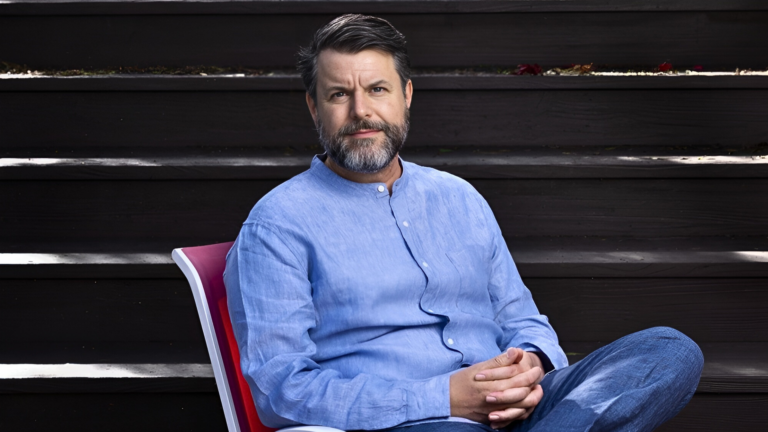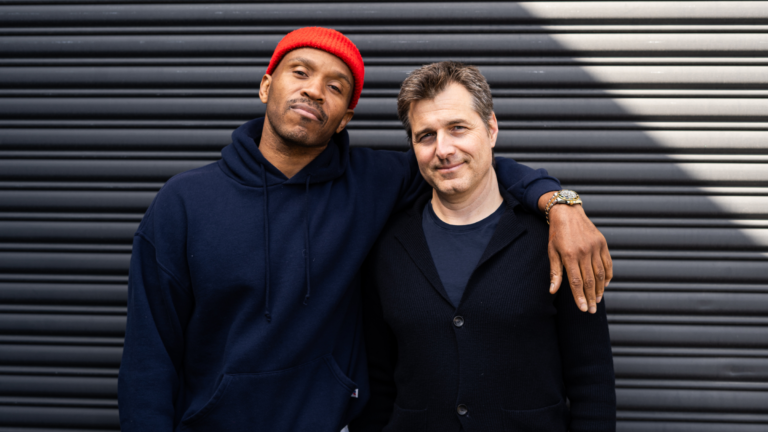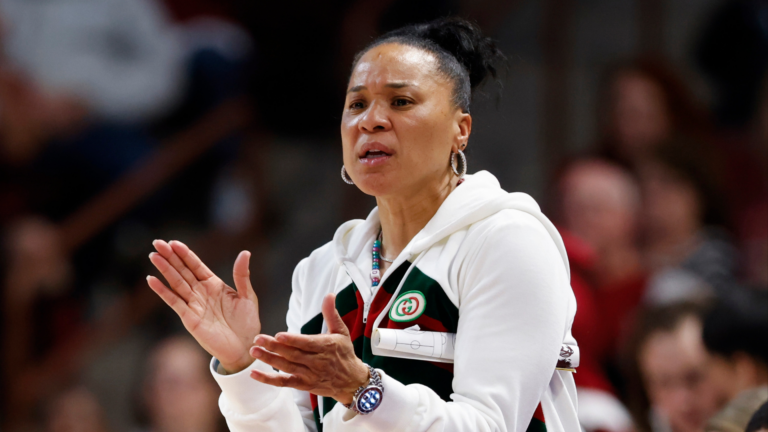This week’s conversation is with Father Greg Boyle, an American Jesuit priest and the founder of Homeboy Industries, the largest gang-intervention, rehabilitation, and reentry program in the world.
Each year over 10,000 former gang members and previously incarcerated people come through Homeboy Industries’ doors where they are given hope, training, and support to redirect their lives and become contributing members of our community.
Father Greg is a recipient of the California Peace Prize, has been inducted into the California Hall of Fame, and was named a “Champion of Change” by President Obama in 2014. He is also the author of three acclaimed books, including his 2010 New York Times bestseller, Tattoos on the Heart: The Power of Boundless Compassion.
Father Greg is a rare example of someone who embodies altruism in its purest form – he is an emblem for hope, compassion, kinship, and the power of second chances. I hope this conversation leaves you feeling more connected to the humanity in each of us, and inspired to lift others up in your community as well.
“I’ve learned to stand in awe at what people have to carry rather than in judgment at how they carry it.”
In This Episode:
What is Homeboy Industries?
Homeboy Industries is the largest gang intervention rehab reentry program on the planet. So about 10,000 folks a year walk through our doors trying to reimagine their lives. We started in 1988 when I was pastor of the poorest parish in the city that had eight gangs at war with each other. Largest grouping of public housing west of the Mississippi, and the highest concentration of gang activity in the city according to the LAPD. So we started a school, and then a jobs program, and then social enterprises.
Infusing hope in the community
If your take is bad people doing bad things, then wipe them out and lock them up and throw away the key. But if this is about a lethal absence of hope, then you go, oh, okay, what if we infused hope to folks for whom hope is foreign? What if we helped heal trauma? What if we delivered mental health services in a timely and culturally appropriate way? So now you’re actually addressing what this is about. So gang violence, I learned pretty early on, even in my naive days, that it was about something else. So the trick was to find the ‘something else.’
Demonizing is always false
I remember a probation officer had said to me, a very good woman, and has since deceased, but she was a friend and she was a confidant. She understood what I was doing. But occasionally she would say, don’t even try with that guy because he’s just pure evil. I remember she said that once, he’s pure evil. And I knew that wasn’t true when she said it. And then years and years and years later of knowing this one guy in particular, it’s totally not true. He’s the father of two boys, happily married, honorable guy. Both sons are really highly autistic and he’s tried to figure out what that means and how does he love them and teach them. He’s my hero. And yet he was somebody who she had said, don’t even bother. So I knew early on that that was not truthful, and discovering that demonizing always is false.
Not believing in evil
Everybody is unshakably good and we belong to each other. I do believe in horrible, because I have eyes, but I don’t believe in evil. I believe that, and homies have taught me that and I can’t unlearn it… They’ve taught me that I’ve learned to stand in awe at what people have to carry rather than in judgment at how they carry it. And so you go, oh this is about despair. A horrible act came as a result of that despair, but it’s about despair. Well this is about trauma and damage and wounded people. A horrible thing happened as a result of that wounded person, but it’s about trauma. And then this is about acute mental illness, which is the clearest of all because it’s nobody chooses to be a sociopath, it chooses them.
It’s all about health
Nobody healthy shoots up a classroom of kids. Nobody healthy invades Ukraine, nobody healthy slaps Chris Rock at the Oscars. None of those things touch anybody’s goodness. It’s all about health. And we’re on a spectrum of continuum of health. And all we’re meant to do is love each other into wholeness. How do we walk each other home, as Ram Dass would say. How do we walk each other into health? I don’t want gang members at Homeboy Industries to become better people. I don’t even know what that means. Homies will say that to me and I’ll say, you could not be even one bit better. Who you are is exactly right. You’re exactly what God had in mind. Now if you can recognize your goodness, then you can inhabit the truth of who you are. You can live from that place, and then you’re joyful.
Find the thorn
At Homeboy, nobody’s okay with violence or horrible things happening, but you want to talk about it. You don’t want to just point things out, you want to point the way. And so you try to get underneath these things, or the homies always say find the thorn underneath, which I like. I think that makes sense to me. Find the thorn. So there’s a thorn somewhere. The homies now know who run the place at Homeboy Industries. They don’t get tripped up by bad behavior. The goal is not how do we create a behaving community, but how do create a community of beloved belonging where people know the truth of who they are. So at Homeboy we’re really allergic to the idea of holding the bar up and asking folks to measure up. Instead, you hold the mirror up and you say, here’s who you are.
Removing the blindfold
The other day, just last week, a homie named Joseph said, he got up and we were having a conversation, he was leaving my office. He goes, you know what? I think life is removing the blindfold. And I said, I think you’re right. But what is it that we see when the blindfold falls? Do we see the error of our ways? Do we see, oh I am a disappointment. I had no idea. What do you see? You see unshakeable goodness and we belong to each other. That’s what you see. Now once you see that the issue is really the blindfold, not the goodness, the goodness is there, always been there. It’s unshakeable. Nothing will touch it. Your illness won’t touch that goodness. Your despair won’t touch it. The damage done to you won’t touch it. It’s always there.
Free will?
I have a hairy eyeball on the free will thing, because a lot of times, especially people have this notion of with kids joining gangs, they had a choice. I go, well not all choices are created equal. I grew up in the gang capital of the world, Los Angeles, and because I won all these white privileged lotteries, parents, zip code, high school, neighborhood, family, really freed of trauma, and I didn’t join a gang. Big whoop. But if you grew up in the projects, in Boyle Heights, in the eighties, good luck. Not all choices are created equal.
Truth
It’s about seeing the truth. Once you see the truth of who you are, then you will live from that truth. You will discover your true self and loving. But it’s not once and for all. So it’s like in recovery where they say just one day at a time, I go, oh no, that’s way too long. It’s like one breath at a time. It’s with every breath, you have to inhale some kind of intentionality to be attentive in the present moment to the person in front of you. Doing that is not hard. Remembering to do that is very difficult. So that’s why we have a practice, that’s why we work at it.
Clarity
People call it tough love, which I don’t agree with. I call it clear. Clear is good, clear is loving. And we hope you’ll walk through that door marked recovery, and we’ll do anything to help you walk through it. But only you can walk through it.
It all comes down to…
Loving as we are loved. So you try to be in the world who God is, and the God who loves us without measure and without regret. And so that’s the goal. But you have to see as God does. So the minute you draw lines, then you forget that God is only about erasing them. And again, it’s not hard to do, it’s hard to remember to do. That’s why you practice. That’s why you cherish every breath you take, which is exceedingly hard. Not because that act is hard, but because not getting caught up in the things, the rabbit holes, that take us every which way. But it’s about seeing, it’s not about I want to be a better person tomorrow than I was yesterday. Because then it’s measuring. And I think our God wonders, ‘What’s all the measurement about?’


